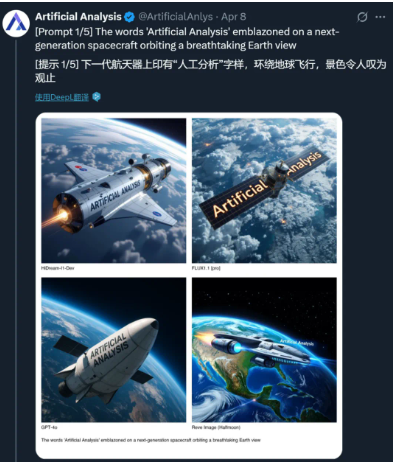Key Highlights
The Academy of Motion Picture Arts and Sciences, the Oscars organizer, dropped a bombshell: films made with the assistance of artificial intelligence (AI) will be eligible for Oscars! This new rule adds fuel to the already heated debate surrounding the relationship between AI and filmmaking.
Rule Interpretation: AI is No Longer a "Sin"
The Academy's new rules, released on Monday, clearly state that using AI or other digital tools "neither increases nor decreases the chances of receiving a nomination." This means that as long as the work itself is excellent, the involvement of AI technology is no longer a barrier to winning an award. Behind this decision is a recommendation from the Academy's Scientific and Technical Awards Committee, showcasing the Oscars' open attitude towards technological advancements.
It's worth noting that generative AI (technology capable of creating text, images, audio, and video from simple text prompts) has already shown its potential in some award-winning films this March. However, the Academy emphasizes that human creative contribution remains a key consideration when ultimately selecting the winners.
Furthermore, the new rules require Academy members to watch all nominated films before participating in the voting process to ensure comprehensive and fair selection.
AI's Quiet "Entry" into the Oscars?
The application of AI in filmmaking is not unfounded. At this year's Oscars, Adrien Brody received a Best Actor nomination for his performance in *The Brutalist* (Note: The original text contained inaccurate information; Brody did not win for this film, and the film has not yet been widely released. This section has been revised based on the original information but retains a fact-checking note). Reportedly, the film used generative AI to optimize Brody's Hungarian accent. Similarly, the award-winning musical *Emilia Perez* was also reported to have used similar voice cloning technology to enhance the singing.
AI's ability to quickly mimic or match an artist's tone and style, or make subtle modifications (such as adjusting an actor's appearance), makes it increasingly popular in music and film production.
Controversy and Concerns: Is AI a Blessing or a Curse?
Despite the convenience AI offers, its use remains controversial. Artists and actors are generally concerned about the source of AI training materials and the potential impact of AI on their livelihoods.
During the 2023 Hollywood writers' and actors' strike, actors and writers strongly expressed their fear of AI replacing human jobs. Renowned actress Susan Sarandon stated at the strike, "If someone can use my face, my body, and my voice to make me say things I haven't said and do things I haven't done, that's not a good thing." Writers also worry that studios will turn to tools like OpenAI's ChatGPT for research, concept development, and even scriptwriting to cut costs and save time, thus squeezing out human writers.
While the agreement reached at the end of the strike included some safeguards regarding AI use, opinions within the industry remain divided. Some actors seem to embrace the technology, while others, like Scarlett Johansson, have warned about its potential misuse in violating image rights.
Technological Bottlenecks: How Far is AI from "Oscar-Worthy"?
Animators interviewed by the BBC in 2024 stated that current generative AI tools are far from being able to replicate their high-quality work, let alone reach Oscar-winning standards.
Jonathan Kendrick, co-founder and chairman of global streaming service Rokit Flix, aptly compared it: "It's like hiring a terrible writer to help you write. Sure, it can create an outline, but if you need something with emotional depth, AI can't help you win an Oscar."
The new Oscar rules open a door for AI in filmmaking, but behind this door lie both opportunities and challenges. Technological development is unstoppable, but how to balance technology application with human creativity and how to protect the rights of practitioners are issues the entire industry needs to continuously consider and address. Whether AI can truly create a "soulful masterpiece" that wins an Oscar, time will tell.










